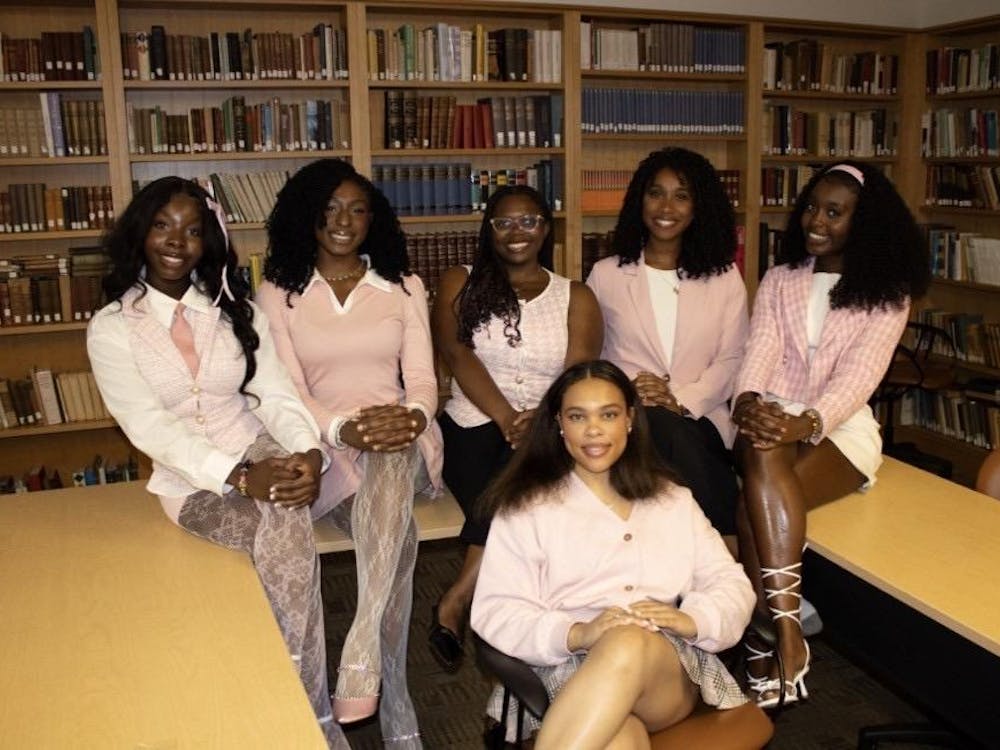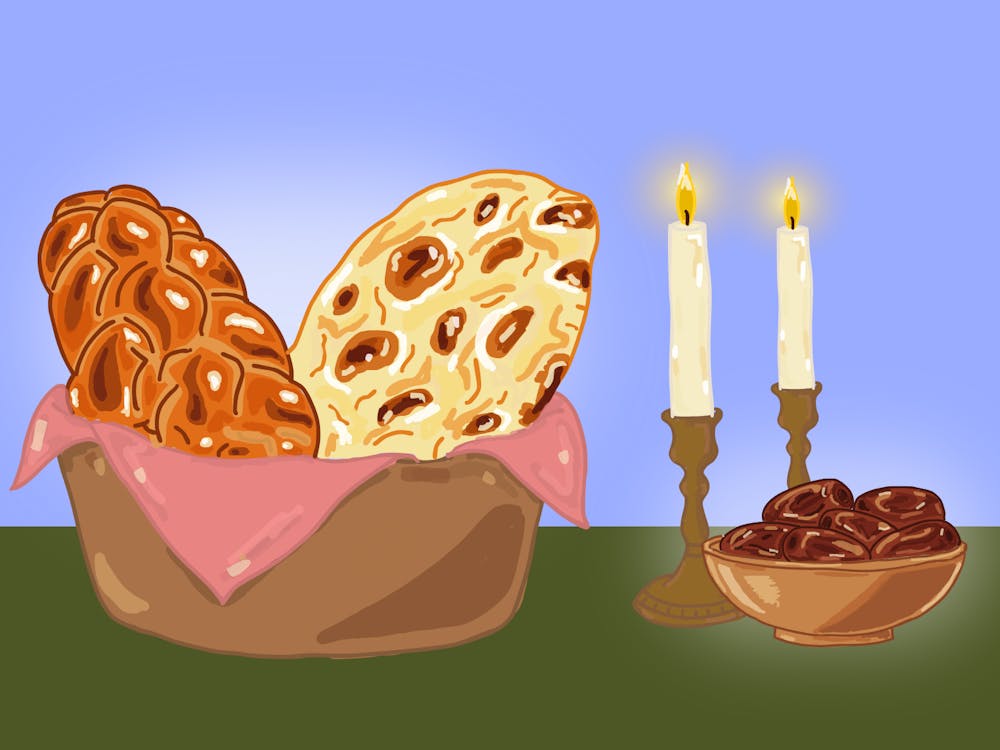It’s a chilly October night. A cold breeze chases my hallmates and me into O’Hill as we file in for a dinner run. We dash hastily up the stairs, trying to shake off the shivers Charlottesville’s sudden onset of autumn gifted us on the walk over. Someone makes a subtle yet wistful reference to “cuddle weather,” only to be met with exaggerated groans and eye rolls all around.
And yet, there’s an unmistakable shift that occurs among the student body this time of year. As the leaves change, descending to the ground to be mercilessly trodden upon, University students’ unfaltering desires for quick barstool number exchanges, fleeting glances and tacky frat house makeouts seem to, well, falter. Something about fall colors, pumpkin spice lattes and crisp autumn winds brings about cuffing season — a period of abnormally heightened sentimentality, typically beginning this time of year and ending with the appearance of the first flowers of spring.
To that end, my friends and I gather our mediocre cuisine around a table and settle into our engaging conversation on — what else? — our latest advancements in the realm of hapless college romance. A friend of Sarah’s from high school, we’ll call him Sam, asks to join. We agree without hesitation, eager to gain a male perspective on the notion of monogamy on Grounds.
“We all want someone to come home to, sure,” he states matter-of-factly. “What people don’t want is to limit themselves.”
I nod. His statement succinctly phrases the tension between commitment and freedom so many people my age seem to grapple with. It made me think, though. If we’re only engaging in relationships that settle halfway between the two extremes, what sort of relationships are we fostering?
Has the monogamous relationship been altered by college life to become something monogam-ish?
In high school, I had a friend with whom I engaged in monogam-ish tendencies from time to time. I suppose you could call it ideal, having someone there when you want him and absent when you don’t. Of course, there seems to be something altogether less satisfying about spending that kind of time with someone you don’t necessarily have a romantic interest in.
This friend and I had fun together, sure, but I could never quite shake the uneasiness I felt knowing I never wanted our relationship to breach the bounds of quasi-romance. There was something about him which repeatedly pushed me to reject his dinner offers and relish the utter lack of romance the back of his car engendered.
It is precisely this conclusion our panel reached on that night of deliberation in O’Hill: to successfully master the monogam-ish relationship, one must be able to see in her partner an unalterable, irrevocable shortcoming that prevents her from ever wanting more commitment. Like a tragic hero in classical Greek theater, your partner must radiate hamartia — some fatal flaw that ultimately leads to his tragic demise.
Be it an unfortunate lack of fashion sense, an obnoxious laugh that makes you want to invest in earplugs or the simple fact you see eye to eye on nothing other than backseat hookups, there is ideally something insurmountable that stands in the way between you and feelings.
I suppose the flaw in my particular partner was this: I refused to believe his (only sometimes charmingly) goofy demeanor could be compatible with mine for anything beyond what we had. All in all, relationships are obviously going to flourish into whatever one cultivates them to be. Lately, though, as I’ve been evaluating some of mine, I find myself wondering: is this my tragic hero? Or is he just a member of the chorus?
Victoria’s column runs biweekly Tuesdays. She can be reached at v.moran@cavalierdaily.com.






